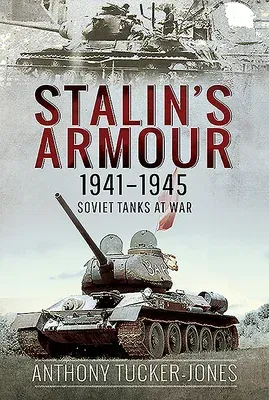Anthony Tucker-Jones
(Author)Stalin's Armour, 1941-1945: Soviet Tanks at WarHardcover, 15 March 2021

Qty
1
Turbo
Ships in 2 - 3 days
Only 1 left
Free Delivery
Cash on Delivery
15 Days
Free Returns
Secure Checkout

Print Length
256 pages
Language
English
Publisher
Pen & Sword Military
Date Published
15 Mar 2021
ISBN-10
1526777932
ISBN-13
9781526777935
Description
Product Details
Author:
Book Format:
Hardcover
Country of Origin:
GB
Date Published:
15 March 2021
Dimensions:
23.62 x
16 x
3.05 cm
ISBN-10:
1526777932
ISBN-13:
9781526777935
Language:
English
Pages:
256
Publisher:
Weight:
612.35 gm